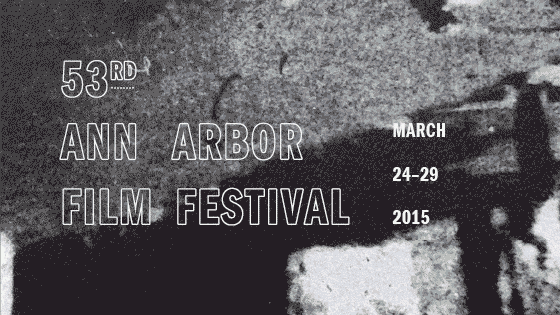PROFESSOR DANIEL HERBERT ON "HOW TO WATCH EXPERIMENTAL FILM" AT THE AADL

On February 4th 2015, Professor Daniel Herbert from the University of Michigan presented his talk “How to Watch Experimental Film”. The lecture was held at the Ann Arbor District Library and co-hosted by the Ann Arbor Film Festival. Professor Herbert gave an overview of the history of avant-garde film and discussed several canonical works of experimental cinema. The lecture opened Germaine Dulac's with definition of avant-garde cinema:
"Germaine Dulac was a filmmaker and film theorist in the 1920’s and 30’s in France, and she thought of the avant-garde literally, as the advanced guard of the military, moving ahead and looking forward at the terrain so that the big troops could move in. She thought the avant-garde was a place where cutting edge artists would explore and invent and then slowly but surely the masses of filmmakers and the masses of viewers would catch up with them. It’s this sense of the avant-garde not only being privileged and better, but faster in a sense of exploration. She was also very adamant about saying that the avant-garde-- the best and most artistic kinds of films-- should in fact only explore what is essentially cinematic, which is to say they shouldn’t be telling stories because that is like the novel, and they shouldn’t be so dramatic like the live theater. She was advocating for a visual cinema: a cinema that used vision as its primary source of creating beauty."
Professor Herbert continued with insights from filmmakers and theorists from the early 20th century, and brought up an observation by P. Adams Sitney:
"He makes a claim that avant-garde filmmakers, as the genre has progressed, are exploring relationships between what’s happening on screen and states of mind."
The lecture continued with a summation of the different genres that have emerged from early avant-garde cinema, with screenings of some of the most well-known pieces of the art form. After showing Mothlight, by Stan Brakhage, Professor Herbert commented that:
"[Brakahge was] trying to see what the eye can see. What can film provide the eye that everyday life doesn’t, or that we don’t pay attention to?"
Herbert also defined the mode of production that many experimental films follow, and mentioned that one of the few places where filmmakers in the genre can come together and commune is the Ann Arbor Film Festival.
"In terms of production, this is what we call an artisanal mode of production. These are films made independently by people in relative isolation, one of the few places they come together as a community is, in fact, the Ann Arbor Film Festival. Most of these people are working in basements or in sheds, and hoping that their film is going to be seen, and then once a year they get to go to the Ann Arbor Film Festival and see that they are in fact part of a bigger group.”
After the presentation concluded its depiction of modern experimental genres of film and art, Daniel Herbert discussed the transition into the post-modern era of avant-garde cinema.
"[Avant-garde cinema] switches from a modernist interest to a post-modern sensibility. A search for form, an exploration of cinema and of the self through film to a more performative, playful situation, and also a changing interest in the topic."
In conclusion to his presentation, Professor Herbert mentioned that he only covered the genres up until the 1990s, and that while there are new genres and modes of production being used today, the Ann Arbor Film Festival continues to screen films that fall into both the modern and post-modern eras of experimental cinema.
"In terms of a historical line, this lecture ends 20 years ago, and there are lots of people doing things with computer animation, digital cameras, digital kinds of things that I can’t possibly address here -- see them at the Ann Arbor Film Festival. I hope that in going to the Ann Arbor Film Festival -- which you guys are well acquainted with – you’ll see that all these genres don’t just go away, and people still make everything mentioned in this presentation. It's cumulative. I still see, especially in students, people making trance films, lots of people making lyric films that have short moments of beauty, and lots of people making things about social identities."
Experimental films continue to evolve as a genre, and at the same time speak to us in languages realized in earlier decades. Examples of all of these expressions can be found this spring at the 53rd annual Ann Arbor Film Festival, March 24th-29th, 2015.
Posted on March 2nd, 2015






